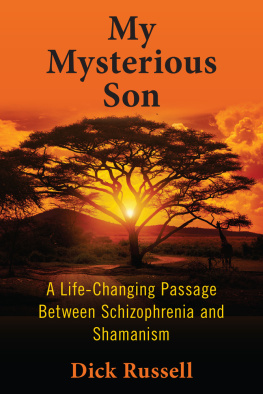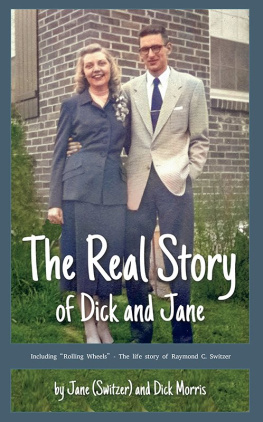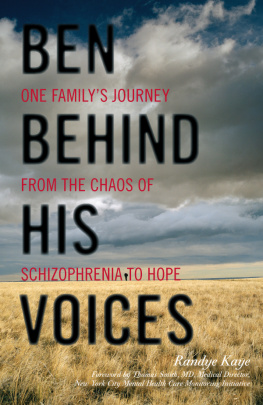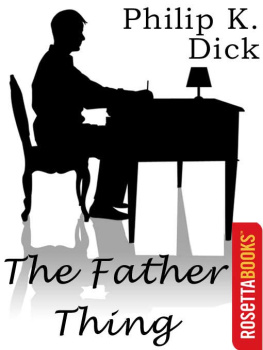


Copyright 2014, 2018 by Dick Russell
Writings and drawings 2014, 2018 by Franklin D. Russell
All rights reserved. No part of this book may be reproduced in any manner without the express written consent of the publisher, except in the case of brief excerpts in critical reviews or articles. All inquiries should be addressed to Skyhorse Publishing, 307 West 36th Street, 11th Floor, New York, NY 10018.
Skyhorse Publishing books may be purchased in bulk at special discounts for sales promotion, corporate gifts, fund-raising, or educational purposes. Special editions can also be created to specifications. For details, contact the Special Sales Department, Skyhorse Publishing, 307 West 36th Street, 11th Floor, New York, NY 10018 or .
Skyhorse and Skyhorse Publishing are registered trademarks of Skyhorse Publishing, Inc. , a Delaware corporation.
Visit our website at www.skyhorsepublishing.com .
10 9 8 7 6 5 4 3 2 1
Library of Congress Cataloging-in-Publication Data is available on file.
Cover design by Jane Shepard
Cover photo credit: Thinkstock
Paperback ISBN: 978-1-5107-2900-1
Ebook ISBN: 978-1-5107-2901-8
Printed in the United States of America
To the Ancestors
Contents
Im a gust on the sea,
Im a footfall of a wave,
Im a roar of the sea
Im a hawk on a cliff,
Im a tear of sunlight,
Im a cry of love,
Im a boar in rage
Im the god who kindles fire in your head
Who makes smooth the mountains stones?
Who can count the ages of the moon?
Who finds the place where the sun goes down?
Excerpt from The Mystery by Amergin Glangel, chief poet of the Giodelic Celts
Prologue: The Tell-Tale Heart
If we are not going to expect that all should be alike and are to agree instead that the psyche has its own strange ways of accomplishing its ends, then perhaps what were called symptoms and syndromes may call for a different interpretation and evaluation.
Dr. John Weir Perry, The Far Side of Madness
T HIS IS A BOOK ABOUT a different interpretation of schizophrenia, based upon almost twenty years of one fathers experiences with his sons struggle against mental illness. Experiences fraught with desperation, confusion, incomprehension, and pain. Experiences also filled with surprise, humor, adventure, and hope. Experiences that ultimately go beyond (but do not discard) the Western medical model for treating mental illness.
This book is also an account of a father-and-son journey. Externally down hospital corridors and through therapy sessions and halfway houses; eventually embarking on travels together in Tanzania, Jamaica, and Burkina Faso. Internally to the depths of the psyche, as well as to the recognition of clairvoyance and another dimensionality to what is called schizophrenia. And ultimately into a shamanic questdivination, ritual, ancestral invocationthat opened unforeseen new possibili ties toward reconciliation and recovery.

W hen I was young, I remember being so captivated by Edgar Allen Poes short story, The Tell-Tale Heart, that I would read it aloud to myself. It began:
True!nervousvery, very dreadfully nervous I had been and am! but why will you say that I am mad? The disease had sharpened my sensesnot destroyednot dulled them. Above all was the sense of hearing acute. I heard all things in the heaven and in the earth. I heard many things in hell. How, then, am I mad? Harken! and observe how healthilyhow calmlyI can tell you the whole story.
Coming upon that passage again all these years later, I realize that the lines are so familiar I seem to have memorized them. I wonder if, when I read this short story, I was around the same age as my son would be when, at seventeen, he experienced his first psychotic episode, as the medical professionals called it.
The terms insanity and psychosis are largely interchangeable, although psychosis is today the common medical term. Symptomatic are delusions, hallucinations, or disorganized thoughts (sometimes all three). The occurrence may be short-lived. Or it may become chronic, often characterized by poor social skills, diminished motivation, and difficulty in expressing emotions.
Of course, parents never think that such a terrible circumstance can happen to them, no matter what traits a child may have displayed in earlier years that can later be seen as precursors. As Andrew Solomon writes in his book, Far from the Tree :
The shock of schizophrenia is that it manifests in late adolescence or early adulthood, and parents must accept that the child they have known and loved for more than a decade may be irrevocably lost, even if that child looks much the same as ever. Initially, parents almost universally believe that schizophrenia is invasive, an added layer masking their beloved child, who must somehow be liberated from the temporary conquest.
I was no exception, though I would later see much of my sons condition mirrored in the accounts of others labeled schizophrenic, as Dr. E. Fuller Torrey quoted them in his book, Surviving Schizophrenia :
- An outsider may see only someone out of touch with reality. In fact we are experiencing so many realities that it is often confusing and sometimes totally overwhelming.
- Sometimes when people speak to me my head is overloaded. Its too much to hold at once. It goes out as quick as it goes in. It makes you forget what you just heard because you cant get hearing it long enough. Its just words in the air unless you can figure it out from their faces.
- I was extremely unhappy. I felt myself getting younger; the system wanted to reduce me to nothing. Even as I diminished in body and in age, I discovered that I was nine centuries old. For to be nine centuries old actually meant being not yet born. That is why the nine centuries did not make me feel at all old; quite the contrary.
Depression as a common early symptom a preoccupation with messianic ideas difficulty in distinguishing what is real from unreal neologisms, or made-up words inappropriate or flattened emotions breaking out in laughter for no apparent reason withdrawal from others and sometimes complete isolation the notion that you can control someone elses mind, or vice versa a frequent inability to sort, interpret, or respond. I used to get the sudden thing that I couldnt understand what people said, like it was a foreign language.
I was no stranger to any of that. Strangeness has typically been the key feature in the fractured dialogues that go on, or the silences that intrude, between the mad and the sane. Madness is a foreign country, wrote Roy Porter in A Social History of Madness . That was certainly not foreign territory to me.
But where does it come from? This is the question that plagues thousands of parents. Is a predisposition for schizophrenia genetically passed on? Is it related to a traumatic event in childhood? Or, more generally, to the way a child was raised? In other words, is it somehow our fault?
Psychologist Julian Jaynes of Princeton University set forth this summary of how the various disciplines view the subject:
The socio-environmental researcher sees the schizophrenic as the product of a stressful environment. The biochemist insists that the stressful environment has its effect only because of an abnormal biochemistry in the patient. Those who speak in terms of information processing say that a deficit in this area leads directly to stress and counterstress defenses. The defense-mechanism psychologist views the impaired information processing as a self-motivated withdrawal from contact with reality. The geneticist makes hereditary interpretations from family history data, while others might develop interpretations about the role of schizophrenogenic parental influence from the same data.
Next page

















